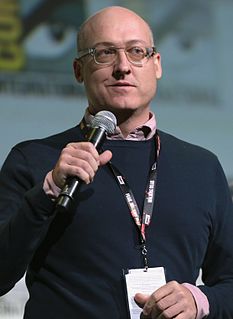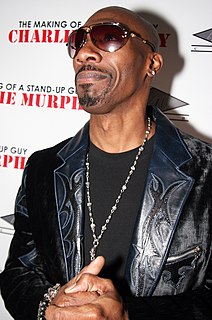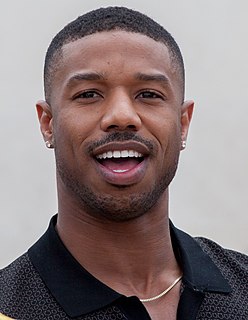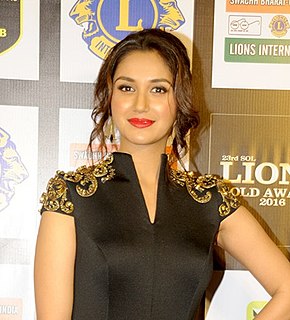A Quote by Julia Stiles
In terms of directing a feature, I'd want the story to be right - you know, it's a year of your life, and you have to be focused on one thing, so I want it to be a story that I really, really care about and will enjoy making.
Related Quotes
The biggest threat to your creativity is the fear that it's already been done, said, created. (So why bother?)
Say it, do it, make it anyway - but tell YOUR story along the way.
The story of how you came to know what you know.
The story of what you want to know more of.
The story of why you do what you do.
The story of how you came to care.
And that's how you create what's never been created before.
Really there's different scales of stories. Sometimes you want to tell one that 20, 30, 40, 50 million people will want to see and hear. Sometimes you do one that you know 150 will want to see on one night. As long as you're telling the right story for the right audience and they're getting something out of it it's essentially the same feeling to me.
I don't think there's a right or wrong things in your style. It's about how you clearly reflect who you are; how you more clearly tell the story. Who are you? How do you want to transmit that to the world, and how do you more clearly say that? Then I have a philosophy, FFPS: fit, fabric, proportion, and silhouette. Proportion's everything, really, knowing your body and understanding that. Those things have been really crucial for me. It's about being clear about the story you want to tell to the world about who you are - and maybe a little bit of FFPS.
I've found great virtue in two-thirds of the way into the message; right before I'm really want to nail home a point, pausing to tell a joke or to tell a light-hearted story, because I know my audience has been working with me now for 20 or 25 minutes. And if I can get them to laugh, get oxygen into their system, it wakes up those who might be sleeping, so there's something about using a story to draw people back in right before you drive home your final point. In that case I think it's real legitimate just to use a story for story's sake.
Indian audiences these days aren't really interested in watching a character on screen evolve. They don't want to see a young girl evolve into being a partner and enter motherhood - they are only really concerned about the story. As long as the story is getting interesting with every passing episode, they want more.
The story is the only thing that's important. Everything else will take care of itself. It's like what bowlers say. You hear writers talk about character or theme or mood or mode or tense or person. But bowlers say, if you make the spares, the strikes will take care of themselves. If you can tell a story, everything else becomes possible. But without story, nothing is possible, because nobody wants to hear about your sensitive characters if there's nothing happening in the story. And the same is true with mood. Story is the only thing that's important.
Is there anyone’s life story you don’t want to know?” “Not really.” His expression was unexpectedly serious. “Because people make a story of their lives. Gains, losses, tragedy and triumph—you can tell a lot about someone simply by what they put into each category. You can learn a lot about what you put into each category by your reaction to them. They teach you about yourself without ever intending to do it—and they teach you a lot about life.
When we're in the story, when we're part of it, we can't know the outcome. It's only later that we think we can see what the story was. But do we ever really know? And does anybody else, perhaps, coming along a little later, does anybody else really care? ... History is written by the survivors, but what is that history? That's the point I was trying to make just now. We don't know what the story is when we're in it, and even after we tell it we're not sure. Because the story doesn't end.




































